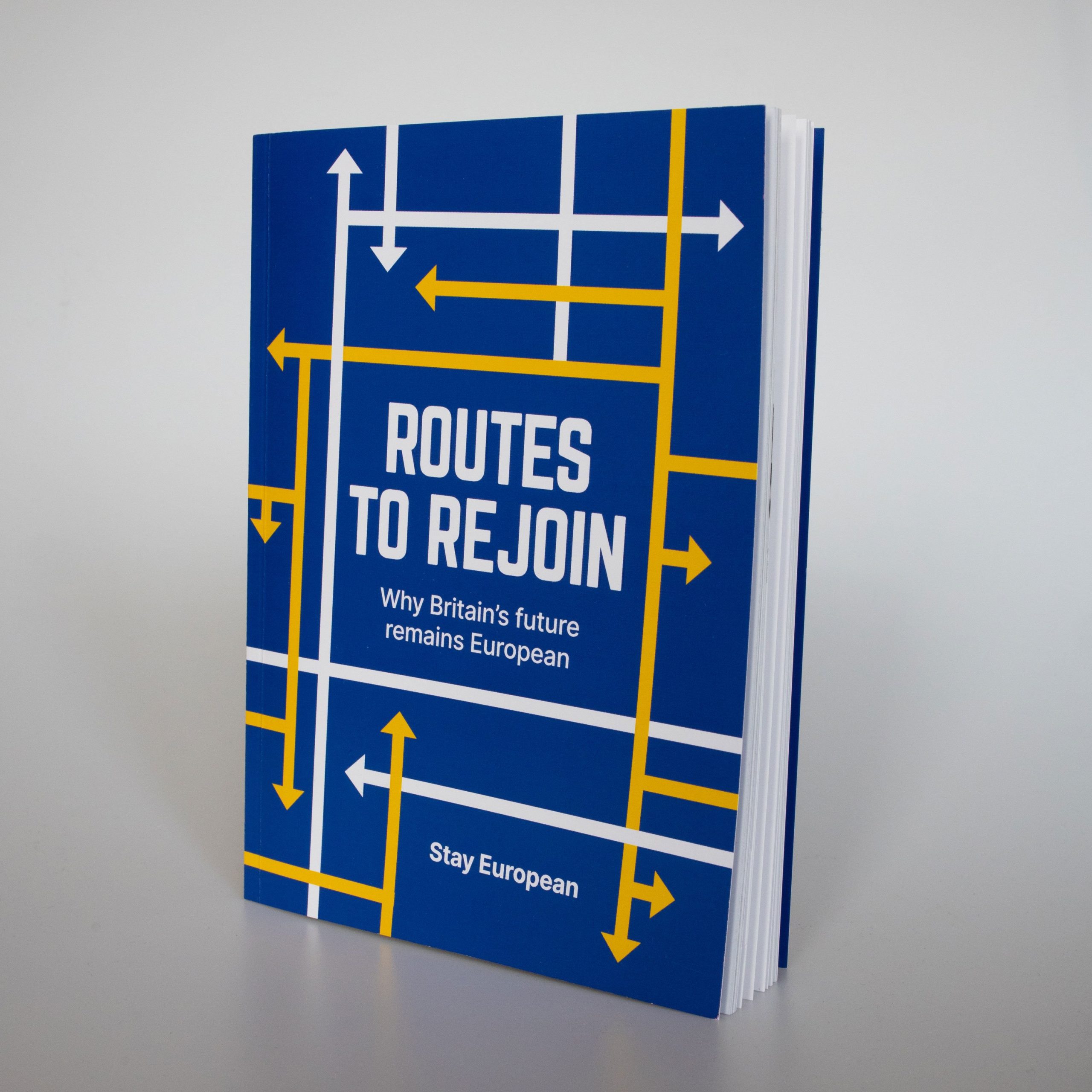Conclusion: Rallying for rejoin

Move on, they tell us, move on! The Brexit battle is over! And, if we’re honest, some people do. The Remain movement’s national organisations – the ones that haven’t folded altogether – frequently announce their latest ‘refocus’ or ‘relaunch’, inevitably with less about Brexit and more about some other issue that they believe to be more fashionable. Long-standing individual campaigners email us: “I strongly support your aims, but…”
Parliament and the media, easily bored at the best of times, groan at any attempts to talk about Brexit. The main political parties observe a code of omertà on an issue that they all believe it is no longer in their electoral interest to speak about – the Tories want to maintain the fiction that Brexit is ‘done’, and Labour and the Lib Dems let them get away with it because they want Brexiters to vote for them.
The Remain, and later People’s Vote, campaign was a (relatively) short burst of energy, a huge movement engaging with the central issue of politics, making headlines every day and with victory sometimes appearing to be in sight. A longer term campaign is simply a different beast.
But just because rejoin is not on the newspaper front pages, just because it is not the burning issue of the moment, we should not believe that it is unpopular. Britain is still a pro-EU country – in many ways more pro-EU than it ever was before the referendum (see chapter 3). Compared to the two-men-and-a-dog support for the anti-EU campaigns of the 1990s, which went on to become UKIP and managed to scare the Tories into putting a referendum into their manifesto, we begin in a much stronger position.
And, as we argued in chapter 1, Brexit is not ‘done’ – it is happening right now. Opposing Brexit is not, as is sometimes claimed, about trying to “undo the past” or “re‑fight old battles”. The battle is right now. Having spent half a decade warning about an imminent car crash, the moment when the car collides with the wall is not the end of the story, not the moment to walk away and say “well I tried”. There are still tragic consequences to play out – and a rescue to attempt.
We were encouraged by the response to our open letter putting an unapologetic case for rejoin. 25 national organisations and more than 40 local pro-EU groups backed the position. Remember, we are not alone in our refusal to ‘move on’. We are not isolated in our commitment to a long term campaign.
The mainstream of politics can shift surprisingly quickly in the right circumstances. In June 2021, former prime minister Gordon Brown unexpectedly said: “I want to rejoin the European Union. I’ll not give up.” He is the most prominent politician so far to take this position – but, as with so much in politics, there would be a rush towards it if the wind started to blow that way.
Just because few are talking about rejoin this week does not mean that it won’t make its way onto the agenda if (when) Brexit causes more disasters. But that will only happen if we can hold together campaigners to keep making the demand, building one another’s confidence, not retreating or telling each other to be more ‘moderate’ in our aims. After all, if we don’t stand up and argue for what we believe in, how can we hope to persuade anyone else?
As public support for the EU holds up and Brexit becomes ever more unpopular, this is not the time to be reticent about saying what we believe, not the time to be strategically minimalist, not the time to limit ourselves by only talking about small tweaks to the Brexit deal. Instead we need to broaden the narrative and have the courage to talk about what we know is really needed if Britain is to recover from these wilderness years.
In the darkest days of Donald Trump’s presidency in the US, many doubted whether they would ever be rid of him. Now, after years of campaigning, moments of despair and the near-calamity when the Capitol was stormed by far-right insurrectionists, they have come out of the other side. Boris Johnson is little more than an imitation ‘Poundland’ Trump – he can be defeated too.
Brexit throws up problem after problem. The first instinct of each sector affected is to attempt some ‘special pleading’, lobbying for a solution to their issue only. But it is simply not possible to fix everyone’s problem while keeping Brexit itself intact. Brexit is the problem. As more and more people experience that, we can start to make links between the wide range of damaged industries and people who want back our right to freely travel across Europe.
The three central aims of Stay European are ‘Regain our rights, resist Brexit’s effects, rejoin the EU’. These are not separate goals: each leads to the other. By highlighting the effects of Brexit and supporting everyone who suffers the pain, we can build a powerful coalition to regain our rights. To get back those rights means moving closer to the EU’s orbit, most likely rejoining the Single Market and customs union. And once you reach that point, rejoining the EU fully is all upside and no downside.
Britain still has routes to rejoin – and that’s because it has, in the final analysis, no routes to making Brexit workable. Stay confident. Make the arguments. Build the movement. We can win.

